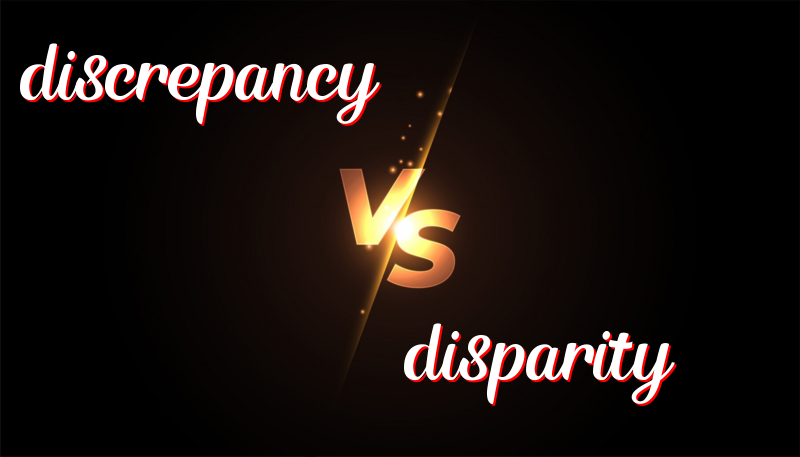Spot the Difference: When Words Play Hide and Seek
Understanding “Discrepancy” and “Disparity”
In simple English, both “discrepancy” and “disparity” mean a kind of difference, but they are used in different ways. Let’s look at each word closely.
What Does “Discrepancy” Mean?
“Discrepancy” is used when there is a difference between two things that should be the same. This word is often used with numbers or accounts.
Origin of “Discrepancy”
The word “discrepancy” comes from Latin “discrepare,” which means “to sound differently.”
How to Use “Discrepancy”
- There was a discrepancy in the report numbers.
- He noticed a discrepancy between what he paid and what was on his bill.
- The check found a discrepancy in the inventory count.
- A discrepancy appeared between the two sets of data.
- The teacher found a discrepancy in the student’s homework.
What Does “Disparity” Mean?
“Disparity” often means a big difference or inequality between two things or groups.
Origin of “Disparity”
The word “disparity” comes from Latin “disparitas,” which means “inequality.”
How to Use “Disparity”
- There is a big disparity between rich and poor people.
- The disparity in school funding affects student learning.
- There is a disparity in size between the two houses.
- The job market shows a disparity in opportunities.
- She noticed a disparity in treatment between the two teams.
Trick to Remember the Difference
A trick to remember: “Discrepancy” is about differences in things that should match or be the same (like numbers). “Disparity” is about differences that show inequality or a big gap (like income).
Summary
Use “discrepancy” when talking about differences that point to an error or mismatch. Use “disparity” when speaking about inequalities or large differences between groups or things that shouldn’t be equal.

Leave a Reply
You must be logged in to post a comment.